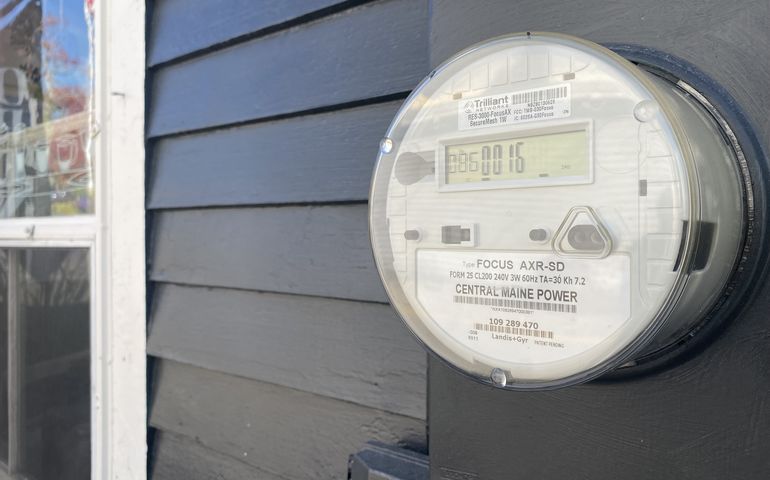Many Mainers will save money on their electricity bills next year
 File Photo / Renee Cordes
Mainers who have opted to pay the default price for their electricity supply will pay less for it next year.
File Photo / Renee Cordes
Mainers who have opted to pay the default price for their electricity supply will pay less for it next year.
Many Mainers will see smaller numbers on their power bills next year, when newly OK'd cuts in the default supply price of electricity kick in.
The reductions, approved by the Maine Public Utilities Commission this week, range from 12% to 36% in the "standard offer" rates that residential customers and businesses pay for their electricity.
The bottom line? For an average Central Maine Power residential customer, a monthly bill will decrease from roughly $159 to $127, the PUC said. That calculation is based on 550 kilowatt-hours of electricity use per month.
For an average residential customer of Versant Power's Maine Public District, using 500 kWh of electricity a month, the bill will decrease from $136 to $118. An average residential customer of Versant's Bangor Hydro District will see monthly bills go from $151 to $128.
The reductions, which begin Jan. 1, apply only to the standard offer rates customers pay for their electricity supply if they do not choose a supplier of their own. Nearly 90% of Maine homes and small businesses are on the standard offer.
The rates make up about half of a typical bill, and do not reflect the cost of distributing electricity across the state's power grid, according to the PUC. Central Maine Power and Versant do not set the rates for electricity supply; they simply bill on behalf of the suppliers so that customers do not receive two bills.
Generating electricity has gotten cheaper in the past year, the PUC noted.
“We are pleased that the bidding process has resulted in lower costs for Maine consumers,” PUC Chair Philip L. Bartlett II said in a news release. “Fortunately, natural gas prices have come down significantly from last year at a time when consumers can really use some relief from the high prices associated with inflation.”
Background
The standard offer represents the default cost Mainers pay for electricity-generating companies to supply power.
When Maine's electricity industry was deregulated in 2000, utilities were required to sell their power plants and other electricity generators, and therefore no longer supplied electricity. The utilities, however, maintain the infrastructure that delivers power to homes and businesses. That infrastructure includes substations, large transmission lines, distribution lines, utility poles and meters.
Since the restructuring, electricity customers have had the option of choosing their own power supplier or using the default supplier, which is chosen in a competitive bidding process conducted by the PUC.
Multiple bidders typically submit sealed proposals in the commission’s annual process for setting the default supply prices. The rates reflect current regional electric power market conditions, which are influenced by natural gas prices, as well as costs to ensure regional electricity supply reliability.
The names of the suppliers that will provide electricity under the standard offer will be released in about two weeks, allowing time for contracts to be finalized.













0 Comments